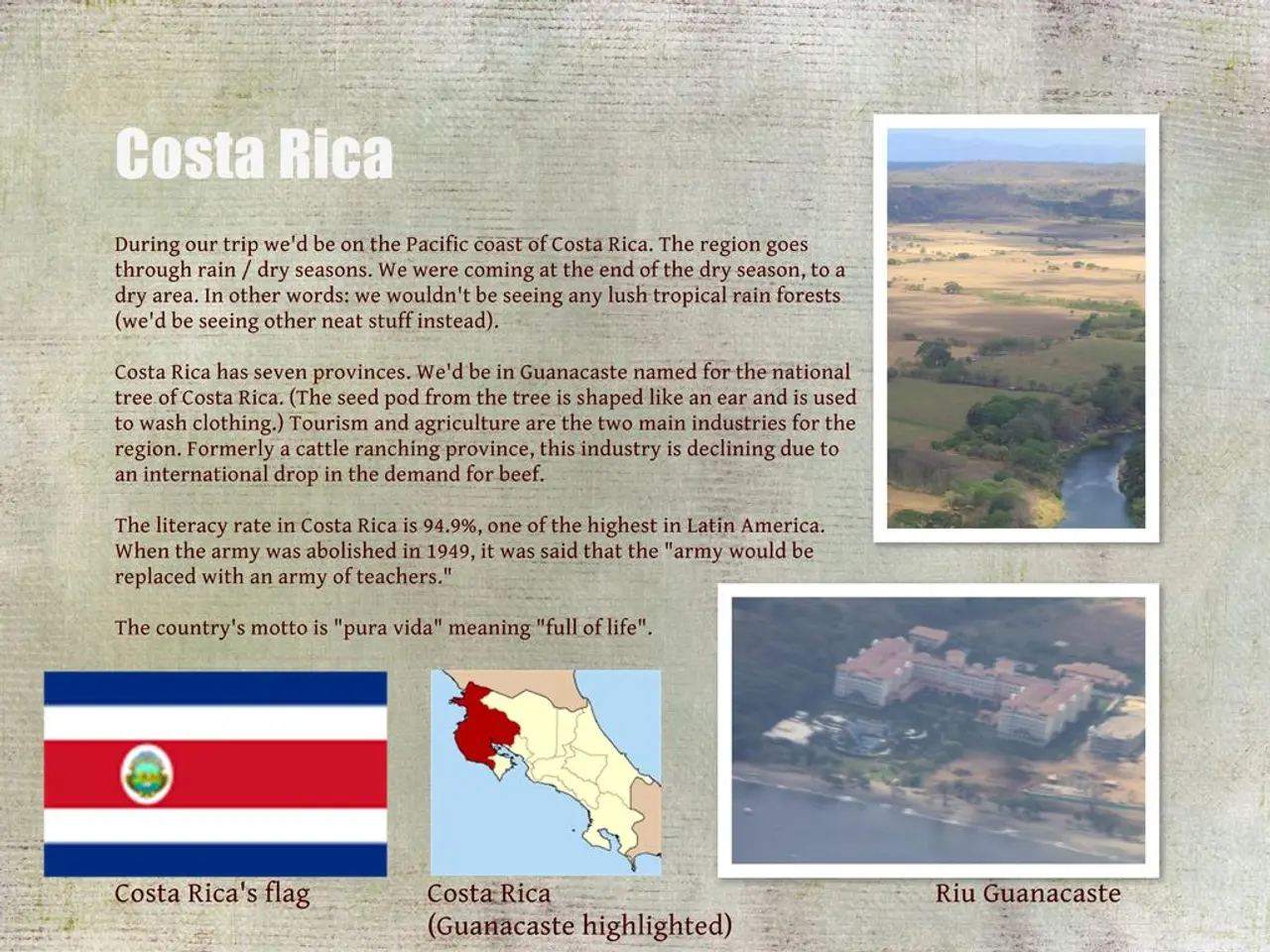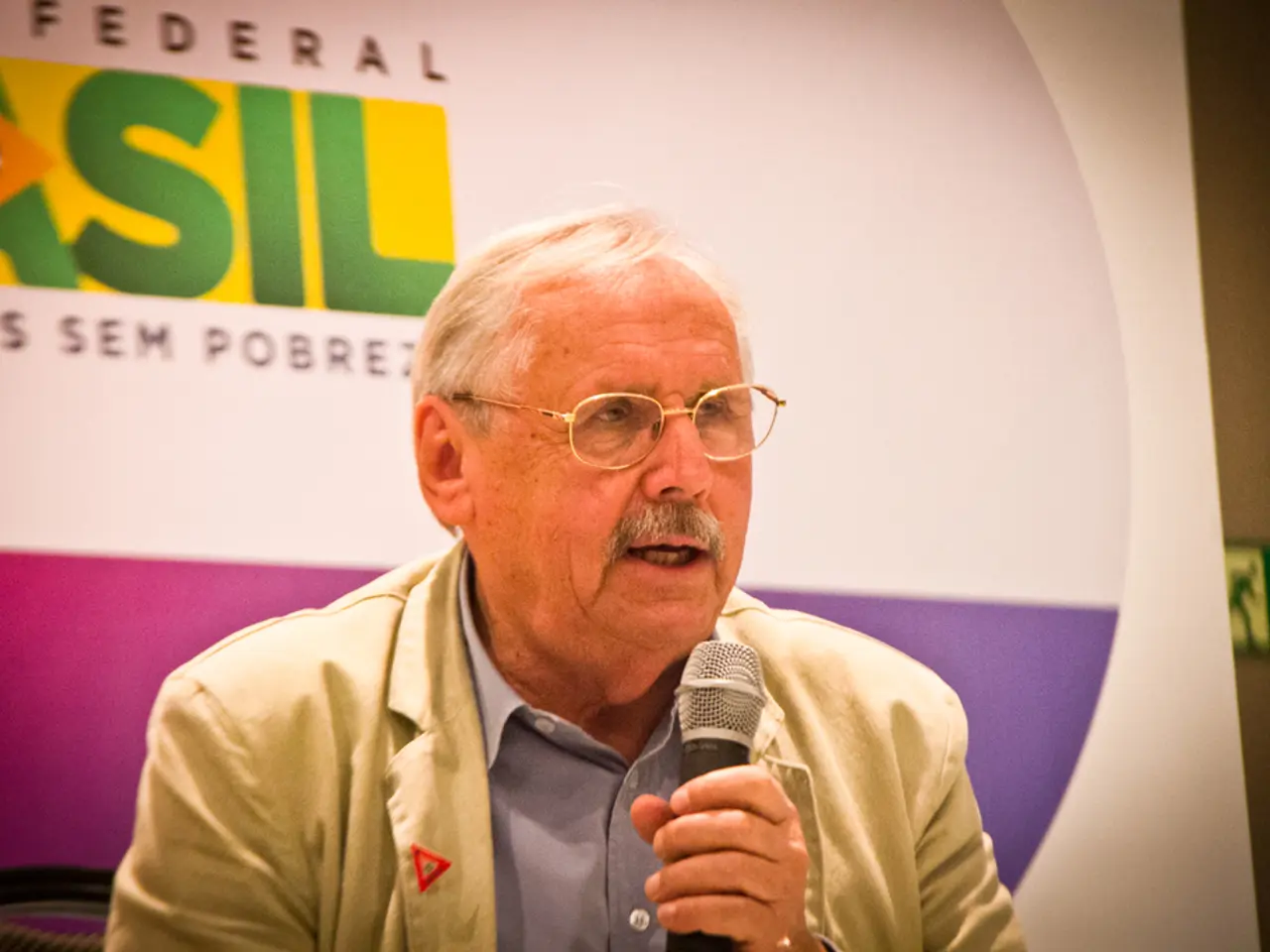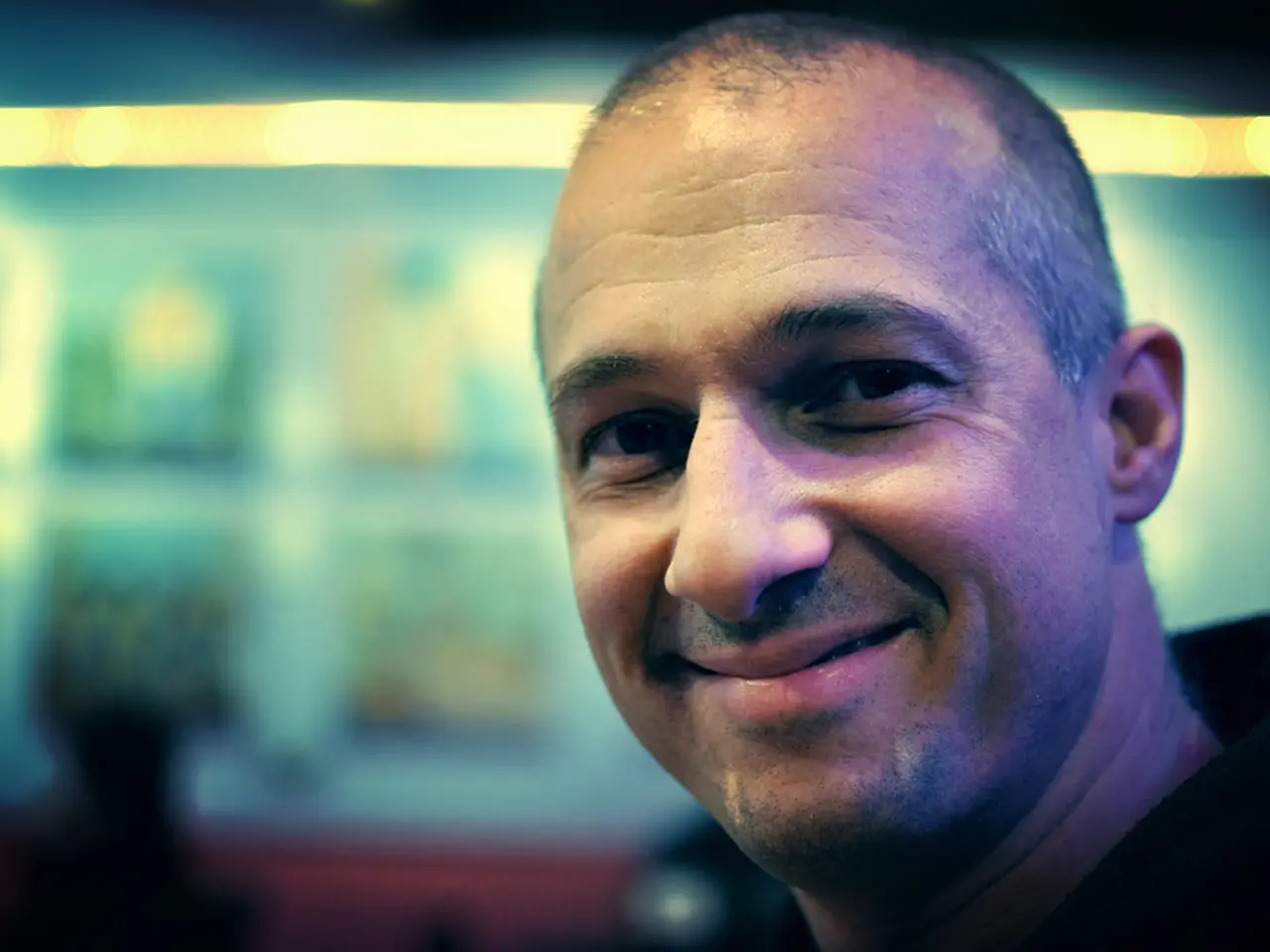Salvadoran authorities facilitate prolonged governance by Bukele
El Salvador's recent constitutional reform, which removes presidential term limits and extends the presidential term to six years, has raised concerns about power consolidation by President Nayib Bukele. This reform allows Bukele to seek indefinite re-election, effectively enabling him to maintain control over the executive branch for an unlimited period [1][3][4].
Critics argue that this move undermines democracy in El Salvador. Opposition lawmakers condemned the rapid approval of these amendments, some saying "This, democracy died in El Salvador... masks were removed," highlighting fears that Bukele is eroding democratic norms and checks and balances [1]. The changes also abolish the previous two-round electoral system, removing an additional hurdle for Bukele's continued electoral dominance [1]. Bukele’s party, New Ideas, which dominates the parliament, pushed through the reforms with overwhelming support and minimal opposition votes, demonstrating his strong grip on legislative power [1].
The consolidation of power follows Bukele’s 2024 re-election after a court decision that allowed him to bypass a constitutional ban on consecutive terms, further demonstrating his increasing control over Salvadoran institutions [1]. His own characterizations, including self-describing as the "cool dictator," underscore concerns about authoritarian trends [1].
Jayme Magaña, a human rights lawyer, states that the idea of alternating power has been broken in El Salvador. Claudia Ortiz, an opposition lawmaker, expressed concerns about the concentration of power, abuse of rights, and dismantling of democratic checks and balances. Roxana Cardona, a lawyer and spokeswoman for the Movement of Social Justice and Citizen Control, states that a democratic state has been transformed into an autocracy [2].
Bukele's attacks on opponents and critics have escalated over the years. Watchdogs have warned that Bukele has ramped up his crackdown on dissent this year. More than 100 members of civil society, including lawyers, activists, and journalists, have fled as political exiles due to Bukele's actions [5].
The reform could potentially allow President Nayib Bukele to remain in power indefinitely. Magaña expresses concern about the future, stating that the more changes are made to the system of government, the more the state's repression of the Salvadoran population intensifies. Bukele remained silent on the matter and his government didn't respond to multiple requests for comment.
El Salvador's Legislative Assembly passed the constitutional reform, removing presidential term limits, with Bukele's New Ideas party and allies approving the changes to El Salvador's constitution [6]. Despite the concerns raised by critics, it remains to be seen how these changes will impact El Salvador's democratic institutions and the future of its political landscape.
[1] https://www.reuters.com/world/americas/el-salvador-lawmakers-approve-constitutional-changes-allow-bukele-run-indefinitely-2022-04-12/ [2] https://www.nytimes.com/2022/04/09/world/americas/el-salvador-bukele-constitution.html [3] https://www.bbc.com/news/world-latin-america-60942440 [4] https://www.aljazeera.com/news/2022/4/12/el-salvador-lawmakers-approve-changes-to-constitution-allowing-bukele-to-run-indefinitely [5] https://www.washingtonpost.com/world/the_americas/el-salvador-bukele-constitutional-reform/2022/04/12/3b1d1286-b71a-11ec-9051-d56611845e4b_story.html [6] https://www.reuters.com/world/americas/el-salvador-lawmakers-approve-constitutional-changes-allow-bukele-run-indefinitely-2022-04-12/
- The controversial constitutional reform in El Salvador, which eliminates presidential term limits, raises questions about the continued dominance of President Nayib Bukele in world politics, particularly with regard to war-and-conflicts, policy-and-legislation, and general news.
- The changes to El Salvador's constitution, as approve by Bukele's New Ideas party, have alarmed human rights activists and opposition lawmakers, who fear the erosion of democracy, the concentration of power, and the potential abuse of rights in Europe.
- The political landscape in El Salvador is shifting towards more authoritarian trends, as Bukele's attacks on opponents and critics escalate and players in crime-and-justice, such as lawyers and journalists, are forced into political exile.
- The consolidation of power by President Nayib Bukele, in the face of no response from his government, raises concerns about how future changes in policy-and-legislation may impact the democratic institutions and the overall political stability of El Salvador in the world.








